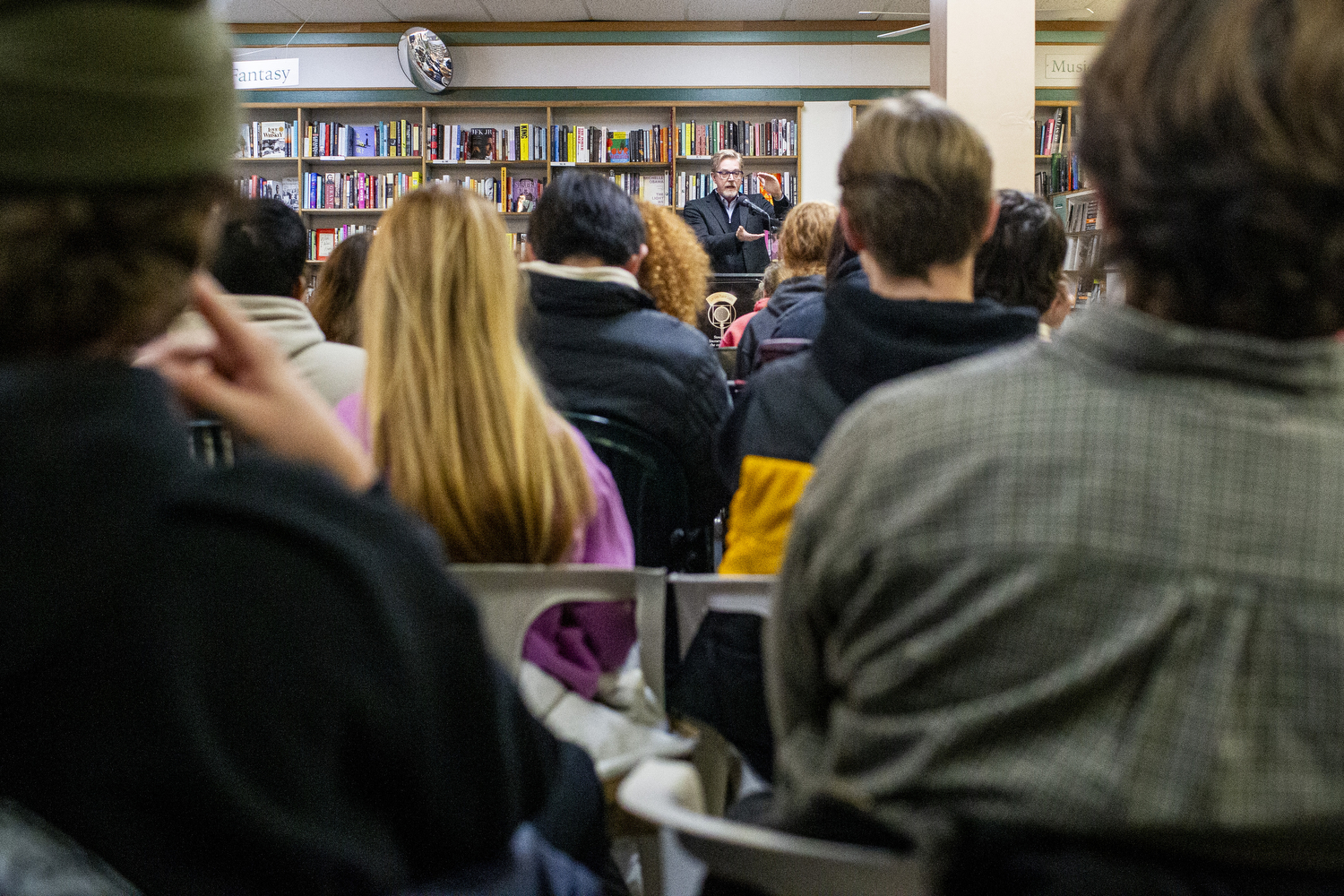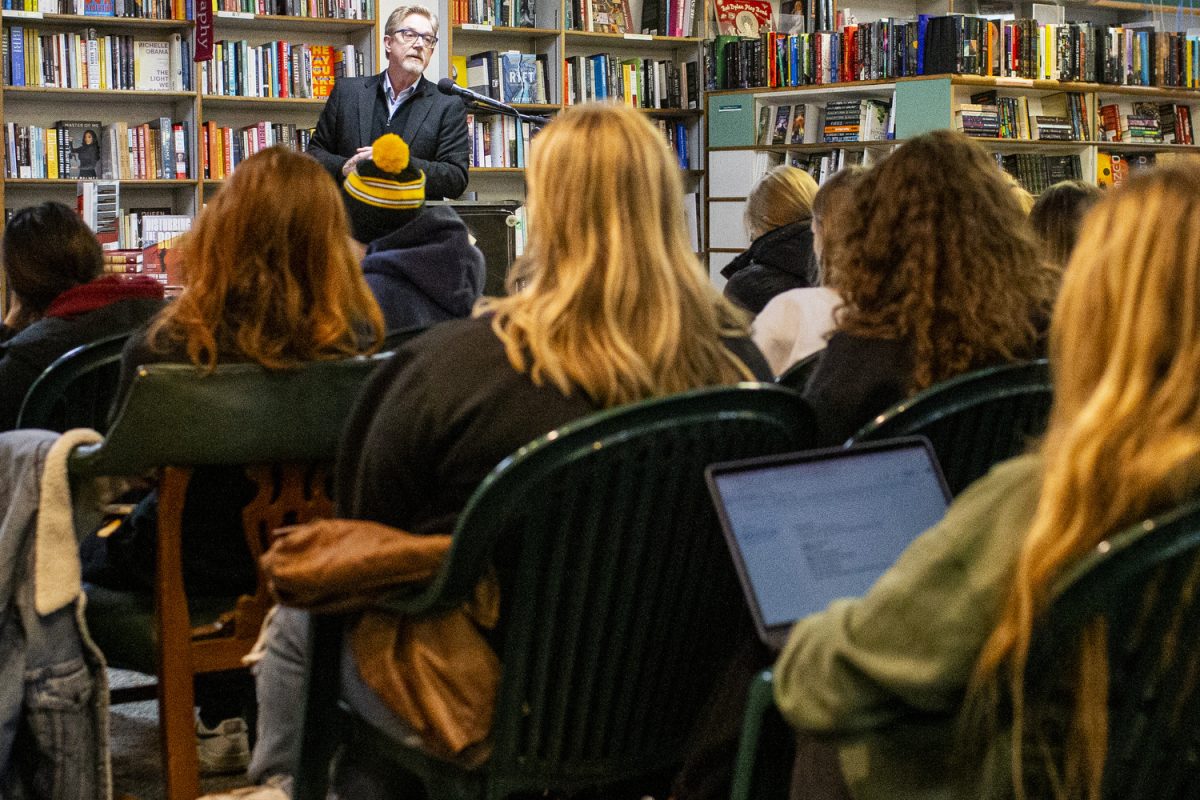Jeff Biggers is an award-winning historian, journalist, novelist, and playwright. Biggers is based in Iowa and Italy and has experience working in the United States, Europe, India, and Mexico as a writer, performer, and educator.
On Wednesday, Nov. 20, Biggers read from his new book “Disturbing the Bones” at Prairie Lights Cafe. The novel is a dystopian mystery with political thriller elements.
The following interview has been edited for clarity.
The Daily Iowan: What inspired you to write “Disturbing the Bones”?
Biggers: This is a thriller with an urgent message, and we’ve made that quite clear. So, what inspired me is that I worked together with the celebrated filmmaker Andrew Davis. He’s the director who made the Oscar-nominated “The Fugitive,” “Holes,” “Under Siege,” and “Perfect Murder” — a dozen films. He’s quite famous and already had this idea to work on a thriller based at an archeological site that also weaved in a military plot. We first worked on a screenplay with the idea of going straight to film. Then, we got hit with COVID and the Hollywood strike.
So, we thought in the meantime, we would shift to a literary form as a novel, which was a fabulous experience for us. It unleashed us to expand in areas you’re not allowed to go in a screenplay. The novel allows you to kind of develop a lot more of the characters and settings. Davis wanted to set it in southern Illinois, which is where I’m from. If you’re going to set a novel in Southern Illinois at an archeological site, we have all these famous archeological sites, you also have to talk about the conflicts over race and social division and the battle against white supremacy and the battle for civil rights. It’s an edge-of-your-seat, page-turner, thriller.
You mentioned collaborating with filmmaker Andrew Davis. Considering your journalistic experience and his experience of being a filmmaker, how did your creative collaboration unfold?
We worked through Zoom, Google Docs, and screen-sharing because he’s in California and I’m in the Midwest. It was great. I spent 30 years working alone, even though I work on theater projects where you work with people. Suddenly, you have two sets of eyes instead of one; you can read the dialogue to each other instead of reading the dialogue to your dog. You have an instant editor as you go over things. You can say ‘That sucks’ or ‘That works.’ We worked where we had our strengths. I love to spend 20 pages describing a tree, and he’ll cut that down to one sentence. So, that was a lot of the give and take, you know, writing economically.
RELATED: Ask the Author | Welch discusses transitions between literary genres and artistic mediums
Was it your intention to publish such a politically driven book late in an election year, or was it just a coincidence?
The book is unabashedly political. We ask these provocative questions about our nuclear weapons policy today. My role is not to lecture you but to throw problems into the realm of fiction. It allows us to have conversations and see situations that we may not be able to have in real life. Three years ago, we wrote the role of a woman becoming president, a Black woman. So, when Kamala announced that she was running, it blew our minds. A lot of what we talk about seems like fiction, but suddenly that fiction is jumping into the headlines, and that’s kind of scary.
What do you hope the legacy of “Disturbing the Bones” will be? Is there a particular message or outcome you hope readers will take away from the book?
Thirty years ago, The New York Times praised Andrew Davis for his movie “Under Siege,” which was a big blockbuster for blending action and art to raise provocative questions about nuclear weapons and our social challenges. We feel that the role of the artist, the writer, or the journalist today is to bring the truth out of the darkness and ask questions.




